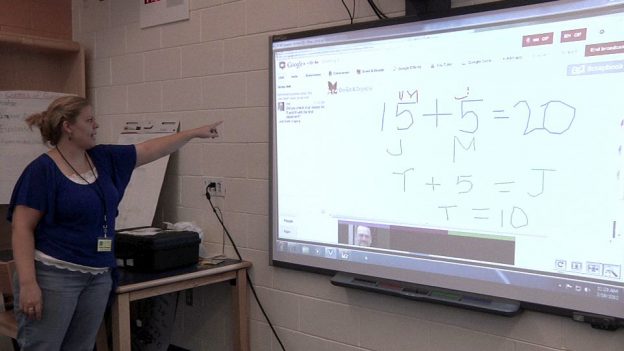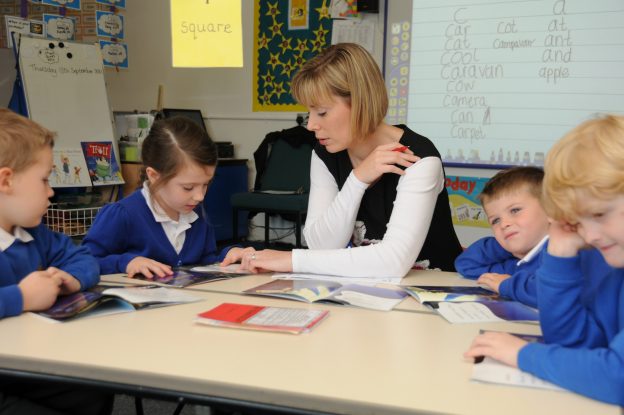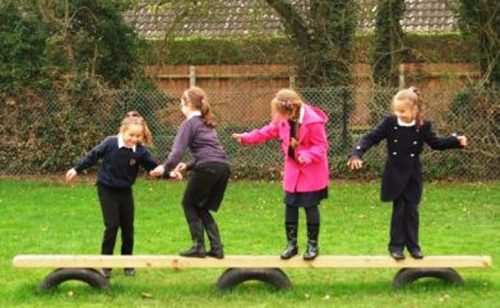The first point in introducing ANY new concepts or topics is to find out what the children already know.




The first point in introducing ANY new concepts or topics is to find out what the children already know.

There is no hard and fast rule for this and to be honest it really depends on 2 things

So here we are at the start of the new academic year….but let’s not rush headlong into the melee. Instead let’s wind back a few steps and approach it from a short distance!

As an Early Career teacher you will now have already secured a job in school for September or will be in the process of interviews for vacancies.
Once you have secured your post it is important that you make time to visit the school BEFORE the summer term ends and for a period of at least a full day.
Irrespective of where you currently live in relation to where you will teach, you must make the effort to phone the school and arrange for your visit.

It may be the case that the school has already contacted you to arrange a day and certainly many will do this. But if they have not then don’t be nervous about calling the school office and getting a date in the diary.
The purpose of your visit:
There are many things that you need to get to know and organise during this day – so that is why it is important. There are also things that you will not be able to do, or will find difficult to do after the school has broken up for the summer holiday – so again its important to get these things sorted out.
Let me put down a list of what you need to do / find out and make a brief comment on each as we go…..

The above are the basics of what you need to know, see and collect on your visit. It really only needs a day but its a tiring day as everything is new and you begin to realise the responsibility you will be facing.
However be friendly and outgoing – ask questions for everything you need to know and if you need explanations or don’t understand something then say so…..colleagues will be only too happy to help and guide you.
Armed with all this information you will begin to feel the realisation that you have made the grade and that THIS IS YOUR SCHOOL !
At this point you don’t need to worry any further about what to do or sort out or arrange. Primary practice has an online course entitled “Preparing for September” which will help you through all the things you need to do. It will guide you from the 1st point you step into your class to sort it out before the term starts and through every step that follows.
https://courses.primarypractice.co.uk/
I hope this short article helps you in your first visit to your school – enjoy your day.
Charles


One of the results of having such a busy career in teaching is that rubbish tends to collect in your classroom.

So just what is a transition day and what is it for and all about?

Let me give this statement some context – I am referring particularly to the 2nd half of the summer term when the cumulative end of year testing and record keeping demands hit their highest level.

As we begin the 2nd half of the summer term we are confronted by 4 scenario’s…

It’s a question that I get asked many times…
“How do I develop my career in school?” or ” how long do I have to wait before I can move up in responsibilities and pay?”

Now this may not be a problem with your class – but for other colleagues it may well be.
It can be one or two individuals or groups or even the whole class that seemingly cannot just go out to play at break or lunchtime without causing problems.
You may say “there are staff on duty who can deal with things,” and yes that’s correct, but only to a point. So where does the problem lie and just who needs to sort things out?
For the majority of the time the staff on duty are more than capable of dealing with everything that happens when the children are outside. Small arguments, accidents and even minor mediation are all dealt with quickly and easily and the majority end there. If there is anything that needs to be passed on to you as the class teacher then they will pop into your classroom after the break or catch you as the children line up.
But let’s just say for arguments sake that your class has a few “characters” in it, that can potentially cause some upset if given the chance….I think that’s a polite way of putting it – don’t you? Through your classroom management and behaviour management strategies their behaviour in class if fine and a gentle reminder every now and then keeps them in line. That’s how it works – both sides (you and the child / children) know and understand the status quo and at the end of the day they know who’s running the show!

Once outside, certain children have the potential to cause problems for the staff on duty – some more regularly than others. So what can be done and just how far do we, as class teachers, have to be involved?
It really does depend on 2 things:
In most Primary schools there will exist a school behaviour policy – whether this is active and working well really depends on the school. In most cases (but not all) the behaviour policy is an over arching statement that brings together the principles of behaviour expectations but does not go into individual class interpretations. So in reality we have each class making their own interpretations of the policy but under the umbrellas of the main school statements.
The right and wrong approach:
It is absolutely right and correct that any member of staff at a school can deal with a problem of behaviour or situation that they may encounter during the school day. It is also correct that this should apply to any pupil within the school. So for example if a child from another class is running down the corridor then I would expect any teacher to stop the child and speak to them. Likewise if a problem occurs in the dining hall or playground then I would reasonably expect a member of staff (and that includes T.A’s) to deal with the problem and if necessary report it to the class teacher.
(Of course for serious situations the reporting level can move immediately to senior management level.)
In the course of events, most problems can be dealt with easily and without recourse to the class teacher. However for persistent offenders(I sound like the hanging judge here!) or a more serious incident then the matter will be reported to the class teacher who can deal with the matter.
The wrong approach (in my opinion):
I say this as it always used to annoy me slightly when this happened.
When something has happened outside and the colleague has dealt with the matter but has imposed a sanction on the child and then tells me about it. The thing that used to annoy me was when the sanction involved me! So I would be told ” Peter was behaving badly at lunchtime today so I told him he can miss 10 minutes of tomorrows lunchtime!”….hang on who is going to have to supervise this – I have just been committed to keeping Peter in for an incident I have not seen or judged – or, as another example, when the punishment is way over the top for the incident and then I am being expected to enforce it!
We used to have a music specialist who came into school – my class at the time were quite a good class but would always mess about when he arrived. His problem was that he had no idea about class control but would throw sanctions out like confetti. At the end of the lesson I would be committed to keeping in 7 or 8 children because of his useless class control. In the end I gave up and took some work into the class and sat at the back to “ride shotgun!”
 (I put this in as a tribute to all music specialists and no this is not one of his lessons!)
(I put this in as a tribute to all music specialists and no this is not one of his lessons!)
Working together:
The person who knows your class best is you – you have a special relationship with all members of your class and all pupils know and understand the levels of expectation that you have set for both work and behaviour. In order for these expectations to extend beyond the classroom you have to work effectively with all colleague’s in the school. The way in which you work can be different for each and every one of them and only you will know what works for both you and them. For some colleagues you will know that you are happy for them to place a sanction on a pupil for something that has happened. You know this is ok because you know both the experience and approach of that person and they, in turn, know how things operate in your class and also your expectations. For others it is perhaps best to ask them to report to you any misdemeanours that may occur …either immediately or following the break. In these cases let the member of staff know that the matter will be dealt with (and I always informed them as to what I had imposed) and to thank them for bringing it to your attention.
Ultimately the responsibility for the behaviour of your class is down to you – whether this is in the classroom or during playtimes, lunchtimes or even with supply teachers. Children should see staff at school as working together and learn to respect all staff in whatever interactions may occur. It is up to you as the class teacher to make sure that happens for your class and that you are seen to support colleagues at all times – in this way the school and staff present a united front to both pupils and parents and that’s the way it should be.
